In this new weekly Tikvah series—broadcast live from Jerusalem—we will sit down with some of Israel’s most interesting journalists, policymakers, and civic leaders to explore the strategic questions facing the Jewish state.
Starting February 1st, join us every Tuesday morning at 9:30 AM EST for exclusive conversations and Q&A on the hottest topics in Israel today: What is the future of the Israeli Arab sector? How will the Israeli Supreme Court change in the years ahead? Can the Israeli economy boom? Are the Abraham Accords succeeding in re-making the strategic map of the Middle East? How will the growing Haredi community shape Israeli society?
By signing up, you can participate live and/or get access to the event videos to watch on-demand.
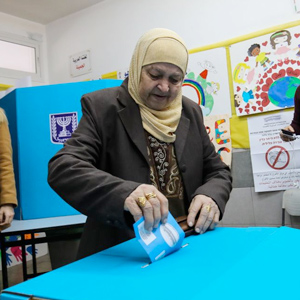
The Future of Israel’s Arab Sector
Sarah Haetzni-Cohen, My Israel and Israel HaYom
Tuesday, February 1, 2022 | 9:30 AM EST / 16:30 IST
Click here to register
In May 2021, riots by Israeli Arabs in mixed Jewish-Arab towns including Lod, Haifa, and Acre shook Israel’s Jewish population to its core. Had peace within our borders suddenly become an unattainable dream? Why did it seem to many that law enforcement failed at a critical time? How do we enhance our preparedness for future outbreaks, on the one hand, while also investing in the Arab sector to promote its social and economic success?
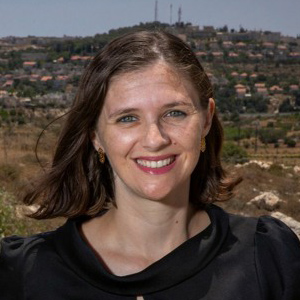 We’ll be joined by political analyst, social innovator, and Tikvah alumna Sara Haetzni-Cohen to explore these questions on the future of Arab-Jewish relations within the State of Israel. Haetzni-Cohen is the chairwoman of “My Israel,” the largest activist movement in Israel working to advance Zionism and the cause of Israel in the world. She is a also a prominent Israeli columnist and pundit, formerly for Makor Rishon and now for Israel HaYom.
We’ll be joined by political analyst, social innovator, and Tikvah alumna Sara Haetzni-Cohen to explore these questions on the future of Arab-Jewish relations within the State of Israel. Haetzni-Cohen is the chairwoman of “My Israel,” the largest activist movement in Israel working to advance Zionism and the cause of Israel in the world. She is a also a prominent Israeli columnist and pundit, formerly for Makor Rishon and now for Israel HaYom.

The Future for the Abraham Accords
Reuven Azar, Former Deputy National Security Adviser at the National Security Council and Foreign Policy Adviser to the Prime Minister of Israel; Designated Ambassador to Romania
Tuesday, February 8, 2022 | 9:30 AM EST / 16:30 IST
Click here to register
In its first year in office, the Biden administration seems to be rolling back titanic changes in Middle East policy in recent years. Talks have resumed on an Iranian nuclear deal, the multi-billion public-private fund meant to support Abraham Accords partners has been suspended, and the Biden administration is pressuring the Israeli government regarding communities in Judea and Samaria. What impact will these and other changes have on Israel and the entire Middle East? Which domestic and international questions will influence Israel’s approach to shifting American priorities, and how will Israel’s new ruling coalition influence its maneuvering ability? What can Israel do to ensure that it sustains and builds on the achievements of the Abraham Accords?
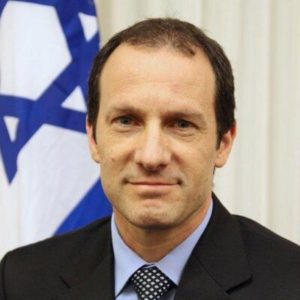 Sharing his unique insights into the role of the Abraham Accords in shaping a new Middle East, we’ll be joined by Reuven Azar, Israel’s Designated Ambassador to Romania and former Deputy National Security Adviser at the National Security Council and Foreign Policy Adviser to the Prime Minister of Israel. It was in the latter positions that he played a key role in the development of the Abraham Accords. A seasoned diplomat, Azar is currently working in the European Department and as Head of the Israel-U.S.-China Task Force at the Ministry of Foreign Affairs and was previously Head of Middle East Research in the Israeli Ministry of Foreign Affairs and Deputy Head of Mission at the Embassy of Israel in Amman.
Sharing his unique insights into the role of the Abraham Accords in shaping a new Middle East, we’ll be joined by Reuven Azar, Israel’s Designated Ambassador to Romania and former Deputy National Security Adviser at the National Security Council and Foreign Policy Adviser to the Prime Minister of Israel. It was in the latter positions that he played a key role in the development of the Abraham Accords. A seasoned diplomat, Azar is currently working in the European Department and as Head of the Israel-U.S.-China Task Force at the Ministry of Foreign Affairs and was previously Head of Middle East Research in the Israeli Ministry of Foreign Affairs and Deputy Head of Mission at the Embassy of Israel in Amman.
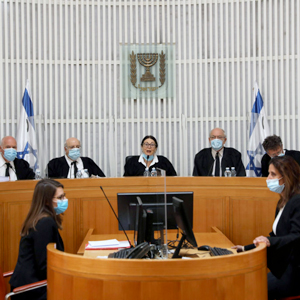
A New Bench for the Israeli Supreme Court
MK Simcha Rothman, Religious Zionism Party
Tuesday February 15, 2022 | 9:30 AM EST / 16:30 IST
Click here to register
Israel’s Supreme Court may be in for a monumental shift over the coming months as over a third of its justices retire by the end of 2023. Justices Hanan Melcer and Menachem Mazuz retired last year and have yet to be replaced, Justices Neal Hendel and George Karra will be retiring in April 2022, and Chief Justice Esther Hayut and Justice Anat Baron will have retired by October 2023. Will this change the ideological balance on the court? The Judicial Appointments Committee is ostensibly in the hands of the political Right, and all of the outgoing justices were perceived to be judicial activists in their orientation. But structural obstacles, political haggling, and a shortage of judicially conservative candidates create great uncertainty on one of the most important issues facing Israel.
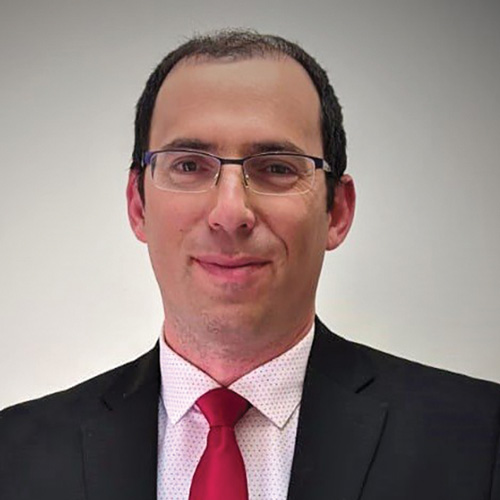 Join us for an in-depth conversation with Tikvah alumnus and Member of Knesset, Simcha Rothman, who sits on the Judicial Appointments Committee. He founded the Movement for Governability and Democracy in 2013, advocating for the separation of powers and judicial restraint in Israel for years before entering political life. He is the author of the bestselling book, Supreme Rulers. Simcha earned an LLB at Bar-Ilan University and studied for a master’s degree in public law at Tel Aviv University and Northwestern University.
Join us for an in-depth conversation with Tikvah alumnus and Member of Knesset, Simcha Rothman, who sits on the Judicial Appointments Committee. He founded the Movement for Governability and Democracy in 2013, advocating for the separation of powers and judicial restraint in Israel for years before entering political life. He is the author of the bestselling book, Supreme Rulers. Simcha earned an LLB at Bar-Ilan University and studied for a master’s degree in public law at Tel Aviv University and Northwestern University.

A Vision for an Israeli Economic Boom
Moshe Behar, Israel Ministry of Finance
Tuesday, February 22, 2022 | 9:30 AM EST / 16:30 IST
Click here to register
Economics has moved front and center in Israeli domestic political discourse in recent years, with intense debates on the cost of living, overregulation, union power, and other key issues. What steps should the government take to promote Israeli economic growth into the next decade? Which policies will ensure that the economic environment that created “Start-Up Nation” can extend to the rest of society? What implications does the recently passed budget have for this vision?
 Join us for an in-depth look into these important questions with Moshe Behar a Tikvah alumnus and a deputy director at Israel’s Ministry of Finance. He has worked at the Ministry of Finance since 2009, and is an expert in areas related to wages, compensation, and employment conditions in a variety of fields including education, higher education, and the national security apparatus. He earned his BA in Philosophy, Economics, and Politics at the Hebrew University.
Join us for an in-depth look into these important questions with Moshe Behar a Tikvah alumnus and a deputy director at Israel’s Ministry of Finance. He has worked at the Ministry of Finance since 2009, and is an expert in areas related to wages, compensation, and employment conditions in a variety of fields including education, higher education, and the national security apparatus. He earned his BA in Philosophy, Economics, and Politics at the Hebrew University.
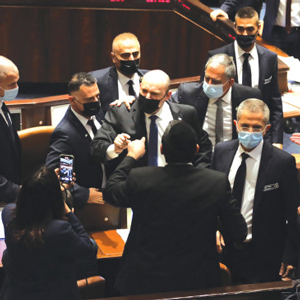
The “Electric” Law That Nearly Brought the Knesset to Blows
Meir Deutsch, Regavim Movement
NEW DATE: Tuesday, March 1, 2022 | 9:30 AM EST / 16:30 IST
Click here to register
In early January, Israel passed the “Electricity Law,” a controversial piece of legislation allowing illegally constructed Arab homes to connect to the electric grid. Members of the opposition claimed Prime Minister Naftali Bennett sold out the state—the prime minister attacked the opposition as hypocrites. The argument was rooted in deep disagreements going to the heart of modern Zionism. What does the law say, what challenges was it trying to address, and what are its implications for Israel’s national security and its law and order? Why has this law’s passage provoked such outrage within the Israeli Right? What are the serious policy alternatives?
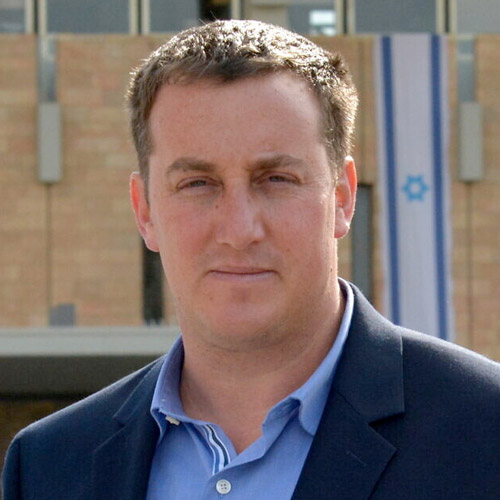 Joining us to offer his thoughts and insights will be Meir Deutsch, director-general of the Regavim Movement, an Israeli nonprofit dedicated to the preservation of Israel’s land resources and the rule of law. He’s a major in the Israel Defense Force and a graduate of Ariel University.
Joining us to offer his thoughts and insights will be Meir Deutsch, director-general of the Regavim Movement, an Israeli nonprofit dedicated to the preservation of Israel’s land resources and the rule of law. He’s a major in the Israel Defense Force and a graduate of Ariel University.

Can the “Anglo” Haredi Change Modern Israel?
Rabbi Yehoshua Pfeffer, Tikvah Israel Haredi Division
Tuesday, March 8, 2022 | 9:30 AM EST / 16:30 IST
The Israeli Haredi world is often incorrectly seen as something of a monolith–a social challenge for the State of Israel, a large welfare state within a state, a drag on security resources dependent on a national draft. In fact, recent years have seen a gradual move toward integration into Israeli society, and an openness to engaging questions of civic duty and citizenship. An often overlooked factor in this process is Haredim from the “Anglo world”—primarily America and Great Britain—whose numbers are growing, and whose combination of a Haredi-lifestyle and engagement with the modern world could provide an important model for Haredi Israel.
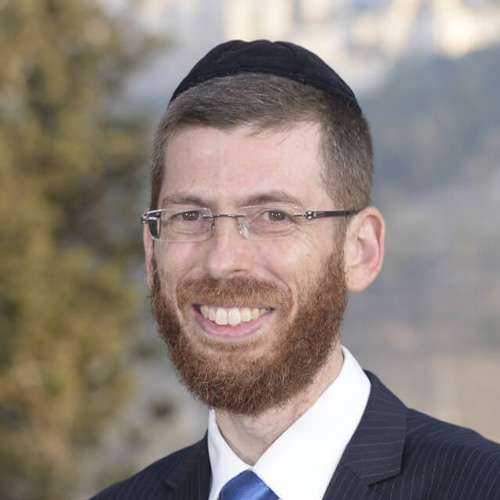 To illuminate this complex situation, we will be joined by Rabbi Yehoshua Pfeffer, community rabbi, editor of the Tzarich Iyun journal, and head of Tikvah Israel’s Haredi Division. He has written extensively on Jewish law and thought, and lectures widely in Israel and abroad. He holds Bachelor’s and Master’s degrees (summa cum laude) in Law from Hebrew University, clerked at the Supreme Court of Israel, and lectures at Hebrew University.
To illuminate this complex situation, we will be joined by Rabbi Yehoshua Pfeffer, community rabbi, editor of the Tzarich Iyun journal, and head of Tikvah Israel’s Haredi Division. He has written extensively on Jewish law and thought, and lectures widely in Israel and abroad. He holds Bachelor’s and Master’s degrees (summa cum laude) in Law from Hebrew University, clerked at the Supreme Court of Israel, and lectures at Hebrew University.